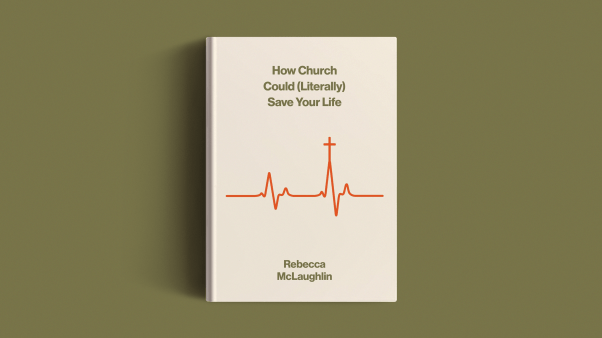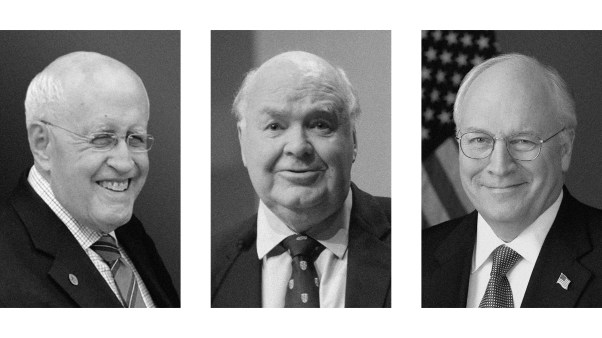What do you hope to accomplish with Being the Body?
If it does nothing else than break Christians free of this dreadful individualism and let them realize that you cannot be a Christian without being deeply committed to a part of the church, then it will have served a good purpose.
In the early ’70s, some observers argued that the reason conservative churches were growing was that they demanded high standards of behavior, belief, service, and stewardship. Recent studies suggest that conservative churches are by and large no longer so demanding. Has there been a cultural shift in conservative churches?
There are still conservative churches that make greater demands on their people than mainline churches do. But I have seen an increasing tendency toward recruitment instead of repentance—an idea that we have to somehow get the postmodern generation into the churches and that somehow their postmodern frame of reference will be engaged by the experience.
I think postmodernism is the enemy of the church. I don’t think you can befriend it, come alongside it, or use it. And I think the seeker-sensitive movement—which is a good thing—can go over the edge and be so sensitive that we don’t bring the demands of the gospel to bear. Churches need to be countercultural. And if we are, I think we’ll get a terrific response.
I believe people are still hungry for orthodoxy. Take Colleen Carroll’s book, The Young Faithful—that tells you that this generation is searching for truth. Everybody is searching for truth. They get told there is no such thing as truth, and it’s intolerant to believe there is, and so they suppress “the natural truth that cannot not be known” that’s in us, as J. Budziszewski puts it.
Believers are bombarded every hour by advertising messages, news programs, and entertainment that all presuppose a materialist worldview. What is the role of the church in helping its members cultivate a Christian worldview?
You’re hitting my hot button! Understanding the cultural commission of the church is as important as understanding the Great Commission. When we are redeemed, the cultural mandate is given to us anew. Therefore we’re giving people only part of the gospel if we talk to them only about salvation and discipleship. If we don’t tell them how to think critically about the world around them, we are betraying our responsibility to them. I don’t believe that any pastor who misses the opportunity to inform his congregation and discipline them in a biblical worldview is being faithful to his call.
And one thing we’re not doing well enough at the seminary level is teaching people how to penetrate the postmodern mind and to think critically about modern culture. Therefore, we lose the culture.
We used to call the worldviews that compete with Christianity by names such as Marxism, Freudianism, or Darwinism. Now you write about Donahuism and Oprahism. Why are these media figures more of a threat than unbelieving philosophers?
The utopianism of the 20th century has been pretty well shattered. Marxism has been discredited. Humanism has suffered some serious body blows. Most of the utopian notions of the 20th century are on the ash heap of history. There is a shift in worldviews in America. The great battle is between secular naturalism and biblical theism. (And between biblical theism and Islam, a subset of controversy between Islam and modernity.) There really is a clash of civilizations.
Oprahism and Donahuism represent a form of materialism that is very seductive because it is pervasive. It makes people believe that they’ll find happiness. It appeals to the “imperial republic of the self,” as George Weigel called it, and therefore is very insidious. What is dangerous today is the postmodern vacuum in which we amuse ourselves to death with Oprah and we substitute feeling better—the therapeutic model—for really facing ourselves.
You say that the most profound picture of the church being the body is not in a successful megachurch, but in a gathering of society’s losers, namely prisoners. Why is a group of believers behind bars closer to God’s vision for Christ’s body than a suburban megachurch is?
Because they concentrate on what life is all about. They are asking the fundamental questions. They cannot be taken in by the trivial and the banal, because they have to fight for their faith. It is a matter of life and death inside the prisons, where rape is an ever-present threat and where Christians are often abused and discriminated against. So they recognize that they can’t survive individually. They can only survive as a community.
We haven’t figured that out in the church on the outside. I love to be in prisons, because there isn’t a person there who is not hungering for truth. There is not a person there who doesn’t recognize that the Christian church is the community against which the gates of hell can’t prevail. And the people in prison are up against the gates of hell.
Many of those people are undereducated and yet you have a strong worldview dimension to your ministry. How do you speak to these important issues at their level?
Worldview is not a necessarily a sophisticated academic term. It is best defined as C. S. Lewis did—I’m paraphrasing—Understanding the way the world works and how you fit into it. People in prison ask the right questions. People outside are basically distracted, amusing themselves to death, as Neal Postman put it.
The minds of people in prison are concentrated on what counts: how you live in this world. In prison I don’t talk about how you deal with the postmodern impasse. I talk about the basic things: where we came from, why there is sin and suffering, the hope that comes in our redemption, the way in which we restore culture. Prisoners are really concerned about this. They want to make the place they live a little bit safer, a little bit more decent. In their confined environment, they see starkly the difference between good and evil.
In the 20th century the church played an important role in toppling oppressive regimes in places like East Germany and Poland. What can North American Christians learn from believers in those lands about political engagement?
In Kingdoms in Conflict (1987), I wrote that the church would be the one agent that could topple Communism. And now I can write about how the church actually did it—by walking the fine line between obedience to those in authority, because they’re appointed by God (and even evil governments are better than anarchy), and also recognizing when evil governments are no longer acting within the authority God gave them and need to be resisted. Now the church has to draw that line with great care. It did it too late in Nazi Germany, but it did it very well and consistently in Eastern Europe.
It is imperative that the church be countercultural and be independent of the state. It is important that it recognize that Christ is King of all, which is why the cross is such an offense and a scandal to tyrants—as is the Star of David. The church in Poland and Romania, to a lesser degree in the Czech Republic and to a considerable extent in Russia, was the chief contributing influence to the sudden fall of the Communist empire.
You’re fervent about the church and yet you’ve devoted much of the past 30 years to working with parachurch organizations. What is the promise and what is the peril of our vast network of parachurch organizations?
What we mean by parachurch is that we come alongside the church—the confessing church, the church where the marks of the church are evident in the preaching of the gospel, the sacraments or ordinances, and discipline. In Prison Fellowship, we’ve been as scrupulous as one could be in respecting the church. Our job is to equip the church—the local confessing community, the church in particular—in its ministry to prisoners, ex-prisoners, and their families. When you think you’re doing it on your own, apart from the church, you’re being disobedient to Christ’s command and to the structure that he has ordained. I think there’s a grave danger.
Organizations like World Vision, Prison Fellowship, and Samaritan’s Purse are on a mission from the local church. Local church people support it, because we can feed the poor more efficiently through something like World Vision. It is an aid to the principle thrust, which has to belong to the local church.
One aspect of Being the Body that’s sure to be controversial is the way in which you and Ellen talk about your “little-c Catholicism,” which includes recognizing faithful Roman Catholics as fellow Christians. A few years ago, you took a lot of heat for your involvement in Evangelicals and Catholics Together. Do you still have to field a lot of those same kinds of questions?
One of the great joys of my life is to see the way evangelicals are now viewing our relationship to the body as a whole differently. There’s been a very healthy improvement. Either that or the people who were really angry have stopped writing to me. Most of my mail now is quite favorable.
Hardly a month goes by that I don’t run into somebody who says, “Boy, I was really opposed to you when you did this, but now I see the wisdom of it. Thank you for your courage.”
What do you value most from your involvement from your involvement with people from Catholic, Orthodox, and other historic churches?
We just had a Prison Fellowship conference in Colorado Springs on ethics and business in the marketplace. It was tremendous. We had a very neat balance of Catholic and evangelical thinkers. The importance of that is that we’re learning a lot from people that we wouldn’t have talked to before.
We’re also finding in ECT areas of agreement we never thought possible. The justification-by-faith-alone document at ECT was an extraordinary step—and the fact that Cardinal Cassidy arranged for it to be taught to the synod in Rome, to all the bishops before the millennium, was a marvelous step forward. There’s better understanding. And evangelicals and Roman Catholics alike are leaving behind some of the parochialism that caused us to create the great scandal of division.
You and Ellen tell many shocking stories about the state of the church and many encouraging ones as well. Has writing this book has made you more or less encouraged about the North American church?
Both. I’m discouraged that we don’t seem to understand postmodernity and or engage it. I’m encouraged that there is a deepening hunger for orthodoxy.
I see most people still misled by postmodern thought, still unable to know how to engage it. The fog of postmodernism has really embraced the church. A lot of people aren’t really aware of what’s happening to them. And yet a lot of people are desperately trying to find the answers to break out of it. When you find people who really want to change it, there are a lot of real activists.
Churches have to experiment with worship forms as the culture around them changes. Of the various trends you see in our worship practice, what encourages you most and what worries you most?
What encourages me most is the commitment to biblical teaching, which remains the great strength of the evangelical movement. What discourages me most is the failure to make people in the pews understand that worship is a participating community experience as opposed to entertainment.
In the book I describe going to a particular church in which I felt like I was being ushered into a theater. In and out in 42 minutes, with incredible music and everything done perfectly. In the 22-minute sermon, the pastor really taught the Bible. But it was like buying a ticket to a show.
On the one hand, I went away discouraged because I didn’t feel like I had participated in a worship service. On the other hand, I realized that all of those boomers—and the pews were just jammed full of boomers—were getting a good solid dose of the Scripture. I saw both the good and the bad, and I saw the thing that worries me the most and then the things that encourage me the most, in that one service.
I just wish we could make it what poet Allen Tate called “knowledge carried to the heart.” We have to do more than just give people biblical knowledge. We have to figure out how to carry it to the heart.
Copyright © 2003 Christianity Today. Click for reprint information.
Related Elsewhere:
Being the Body by Charles Colson is this month’s selection for the Christianity TodayEditor’s Bookshelf. Other sites of interest include:
Read our review by David Neff
Buy the book online
Buy other books of Charles Colson
BreakPoint Online offers transcripts, articles, and columns by Colson. Listen to Colson’s daily or archivedBreakpoint broadcasts at oneplace.com.
Charles Colson’s other books include (available on Christianbook.com): How Now Shall We Live?, The Body, Against the Night, Justice that Restores, Science and Evolution, The Christian in Today’s Culture, Why I Believe in Christ, Life Sentence, The Problem of Evil, Loving God, and Born Again.
Christianity Today printed a profile of Colson in 2001 called, “The Legacy of Prisoner 23226.” Colson is also a regular columnist for Christianity Today








